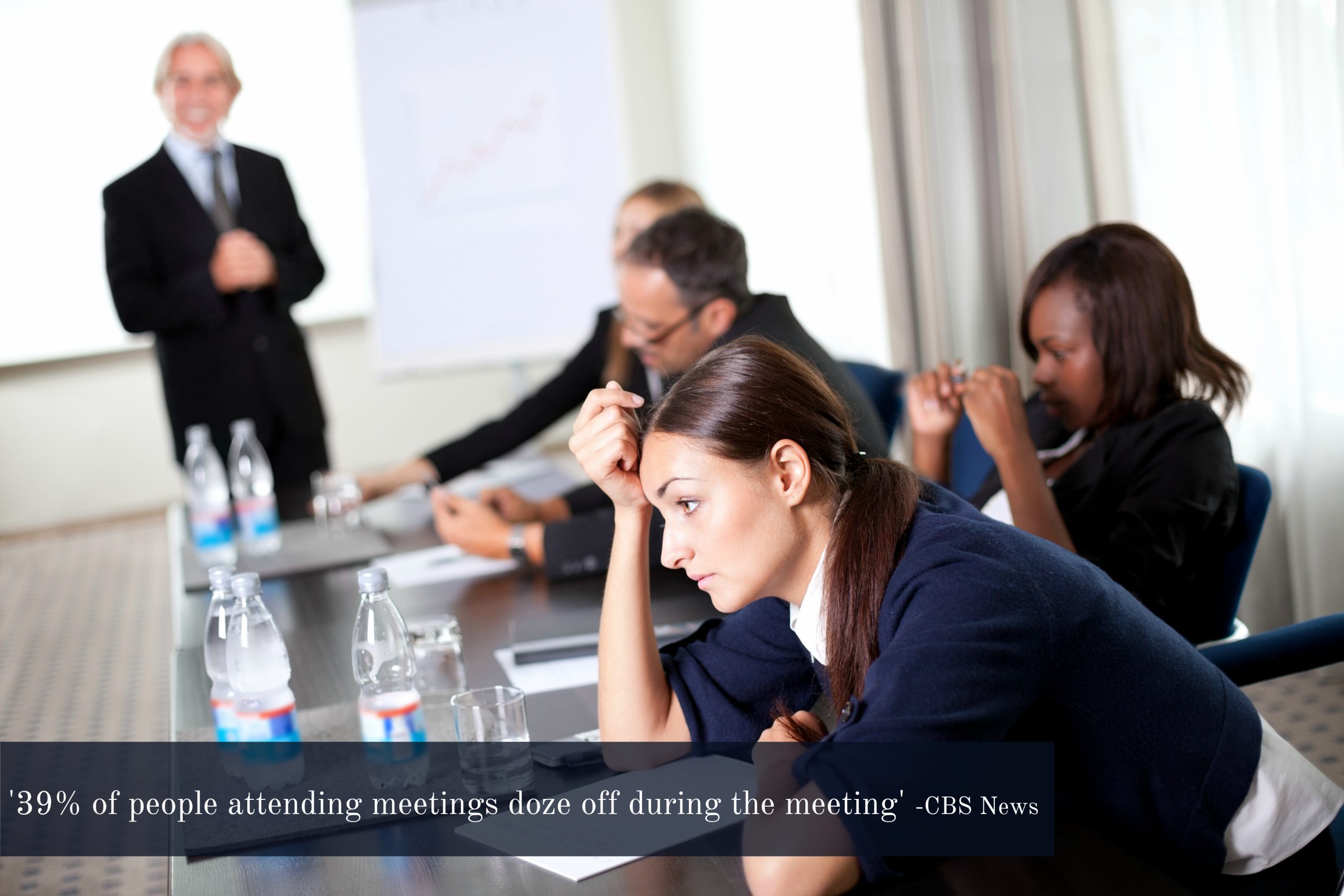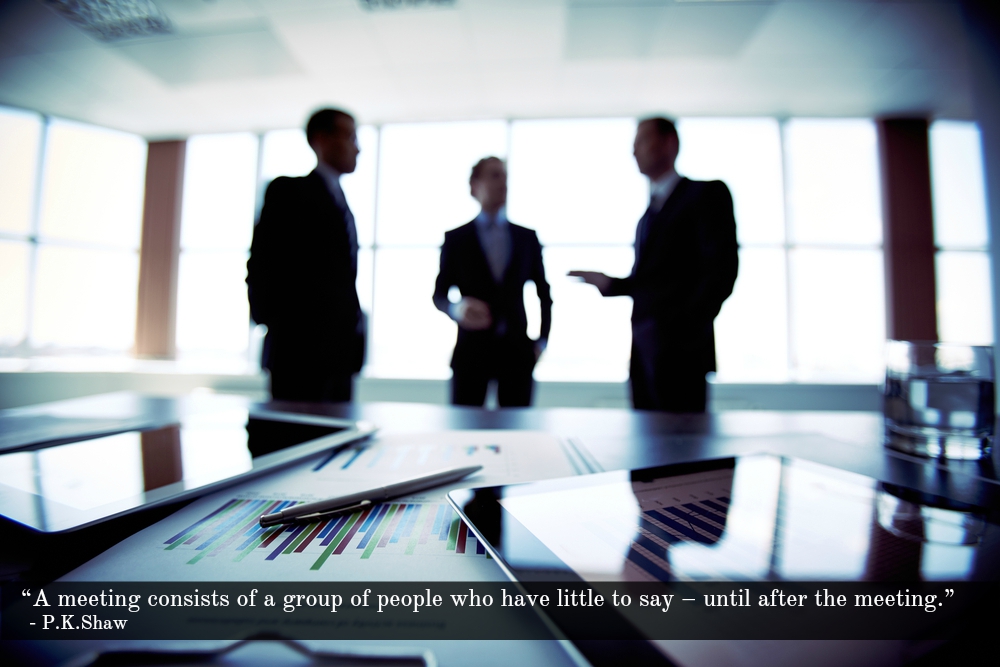Tips to Effectively Manage a Meeting


Effectively Manage a Meeting
When it comes to meetings so many people get it wrong, so we have put together a few tips on how to effectively manage a meeting.
Tips to Effectively Manage a Meeting
Attendance
Only invite the people that need to attend; over-inviting can cause delays and waste people’s time. Ensure the key members can and will attend so significant decisions can be made; there is little point in holding a meeting if you will need to repeat the meeting anyway with an absent party.
If the meeting isn’t absolutely necessary then cancel. Holding a redundant meeting is a waste of people’s time and demonstrates that you don’t really value the importance of the work they do if you are willing to waste it.
Preparation
In order to improve, it’s important to reflect on previous meetings. Assess what worked well, who made valuable contributions etc. so you can make an informed plan and implement an efficient meeting.
Organise all technicalities prior to meeting; test in advance and have someone on standby in case you experience any technical difficulties.
If you are using technical support be sure not to rely on it. Be certain that you know the content, so you can improvise and continue the meeting if anything does go wrong.
Make sure you do your research prior to meeting; if there is a name on the attendance list you don’t recognise make the effort to find out who they are and what they do; it will be appreciated. Spare some consideration for the attendee’s relationships with each other; if they are from different departments then be sure to make introductions.
Decide on a clear objective: what do you want to achieve at the meeting?
Make sure all attendees are fully informed to avoid confusion. Send out an agenda in advance, forward out all of the details prior to the meeting and send a reminder the day before.

Agenda
Agendas are vital to a meetings success, informing and guiding attendees through the objectives. Without an agenda people often get carried away and meetings unnecessarily run overtime.
Distribute an agenda a couple of days prior to the meeting, this way there is no excuse for anyone to come unprepared. When planning the agenda it is good practise to schedule in order of importance, so the critical topics are covered first. This way, if for any reason the meeting is at risk of running late, you can still finish on time and cut/postpone the less important topics that weren’t covered.
Finally, if you have made an agenda be sure to stick to it. If someone asks a question or raises a point irrelevant to the agenda, make a note of it and either follow it up after the meeting or schedule it in the next agenda.
Time Keeping
Start and end on time; if someone is late then proceed anyway and they will have to face the embarrassment of walking in late. This will teach them not to be late again and will also send a message to others in the meeting, that tardiness is not tolerated. It is also important to lead by example, so be sure that you always arrive early to your own meetings.
Avoid meetings running over 1 hour 30 minutes; after this amount of time people tend to lose focus. If you need to have a longer meeting then take a break at this time so everyone can take a moment to refresh.
Your Role
As the leader of the meeting, it is your responsibility to encourage participation and deter disruption.
It is important to maintain a level of balanced participation. There are always those who like the sound of their own voice and then there are those you hardly ever hear from. Without discouraging active participants make sure they don’t dominate; everyone in the meeting needs to feel valued.
The attitude you bring to the meeting is likely to rub off on others, so make sure you enter with a positive and productive mind-set. Encourage team productivity and keep everyone motivated throughout the meeting. Even if you have had to address some negative points, you still want everyone to leave feeling proud to be a part of the company/team.

Execution
Never underestimate simplicity, you will lose people’s attention and waste time if you overcomplicate; just get to the point and say it straight. Although it can be hard to avoid, ensure you don’t get sucked into a lengthy one-on-one conversation as this wastes everyone else’s time.
Remember to take personal notes. Even if there are minutes recorded it is still important to take note of the points directed at you, so you remember to take action after the meeting.
Demonstrate a strong team mentality, using ‘we’ rather than ‘me’ where possible.
Conclude the meeting on a high note; sometimes there will be unpleasant topics to discuss but to avoid leaving the team feeling demoralized get them out of the way early on.
Recap quickly at the end of the meeting to reinforce the important points and refresh everyone’s memory.
Follow Up
Express your appreciation by sending out a follow up email, thanking the attendees for their presence and contribution.
Create an action plan to distribute with the minutes. Send out separate action plans if there are tasks assigned to individuals.
Give credit where credit is due; if someone has surpassed themselves or overachieved make sure they know it’s appreciated. This way they will know the work they do is valued and will strive to continue to impress.
Although it may not be feedback you want to hear, it is good practise to ask for anonymous feedback on the meeting, so you can improve next time.
Environment
It’s important to ensure the comfort of your guests. This comes down to the quality of the venue and its facilities: temperature, refreshments, seating, toilet facilities etc.
CCT Venues strive to maintain high quality professional venues in four key London locations.